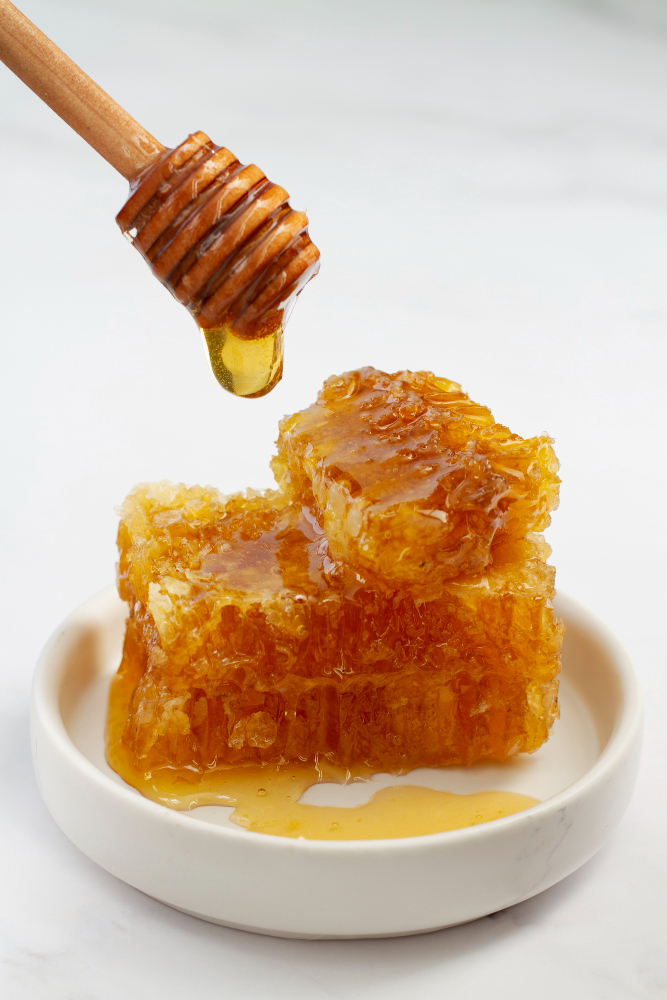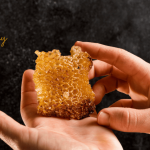Honey is more than just a sweet treat. It’s been used for centuries to heal wounds and fight infections. With antibiotic resistance on the rise, people are curious: Can honey replace antibiotics? It sounds promising, but is it true? In this blog post, we’ll explore what science says about honey’s antibacterial powers. We’ll look at its benefits, limitations, and how to use it safely. Let’s dive in with a clear, friendly look at the facts!

What Makes Honey Antibacterial?
Honey is a natural wonder. Bees make it from flower nectar, adding enzymes that give it unique properties. These properties help honey fight bacteria. Here’s why honey is special:
- High Sugar Content: Honey is very sugary. This pulls water out of bacteria, making it hard for them to grow.
- Low pH: Honey is acidic. Most bacteria don’t like acidic environments.
- Hydrogen Peroxide: Honey produces small amounts of this natural antiseptic. It kills germs.
- Antioxidants and Enzymes: These compounds, like flavonoids, attack bacteria and boost healing.
These traits make honey a tough environment for bacteria. But can it really stand up to antibiotics?
What Studies Say About Honey’s Antibacterial Power
Scientists have studied honey for years. They want to know if it can fight infections like antibiotics do. Here’s what research shows:

Honey Kills Bacteria
A 2016 study in Frontiers in Microbiology tested honey against common bacteria. These included E. coli and Staphylococcus. Honey stopped their growth. Some types, like Manuka honey, were especially strong. This suggests honey can act like an antibiotic in certain cases.
Effective for Wounds
Honey shines in wound care. A 2015 review in The Cochrane Database looked at 26 studies. It found honey speeds up healing for burns and cuts. It also fights wound infections better than some antiseptics. Medical-grade honey is now used in hospitals for this purpose.
Fights Resistant Bacteria
Antibiotic-resistant bacteria, like MRSA, are a big problem. A 2019 study in Phytotherapy Research showed honey can kill MRSA. Manuka and raw honeys were most effective. This is exciting because resistant bacteria are hard to treat with regular antibiotics.
Helps with Coughs and Throats
Honey soothes sore throats and coughs. A 2020 study in Pediatrics found honey worked better than some cough medicines for kids. It reduced throat bacteria and eased symptoms. While not a direct antibiotic, it supports the body’s fight against infection.
Types of Honey: Which Is Best?
Not all honey is equal. Some types have stronger antibacterial effects. Here’s a quick look:
- Manuka Honey: From New Zealand, it’s the gold standard. It has a compound called methylglyoxal (MGO). This makes it extra strong against bacteria.
- Raw Honey: Unprocessed and unheated, it keeps more enzymes. It’s better than processed honey for fighting germs.
- Local Honey: Varies by region. It may not be as potent as Manuka but still has antibacterial properties.
- Processed Honey: Found in most stores, it’s heated and filtered. This reduces its healing powers.
For medical use, choose raw or Manuka honey. Look for “UMF” or “MGO” ratings on Manuka labels. Higher numbers mean stronger effects.
Can Honey Replace Antibiotics?
Honey is impressive, but it’s not a full replacement for antibiotics. Here’s why
Strengths of Honey
- Works on some resistant bacteria.
- Safe for external use, like wounds.
- Natural and low-risk for most people.
- Soothes symptoms like coughs.
Limitations of Honey
- Not strong enough for serious infections, like pneumonia or blood infections.
- Effects vary by honey type and quality.
- Slow to work compared to antibiotics.
- Not studied enough for all infections.
Doctors say honey is a “complementary” tool. It can help alongside antibiotics, not instead of them. Always talk to a doctor for serious infections.
How to Use Honey for Health
Want to try honey’s antibacterial benefits? Here are safe, practical ways to use it
For Minor Wounds
Honey can clean and heal small cuts or burns.
- Clean the wound with water.
- Apply a thin layer of medical-grade or raw honey.
- Cover with a bandage.
- Change daily. Stop if irritation occurs.
For Sore Throats
Honey soothes throat infections.
- Mix 1-2 teaspoons of raw honey in warm tea.
- Add lemon for extra vitamin C.
- Sip slowly to coat the throat.
For Coughs
Honey calms nighttime coughing.
- Take 1 teaspoon of honey before bed.
- Or mix with warm water and drink.
As a Daily Boost
Honey may support immunity.
- Add 1 teaspoon to yogurt or oatmeal.
- Don’t overdo it—honey has calories.
Example: Honey-Lemon Cough Soother
Here’s a simple recipe for coughs
- Mix 1 tablespoon of raw honey with 1 tablespoon of fresh lemon juice.
- Stir into ½ cup of warm water.
- Sip slowly. Use once or twice daily.
This eases throat irritation and fights bacteria naturally.
Safety Tips for Using Honey
Honey is safe for most people, but follow these tips
- Avoid for Babies: Never give honey to kids under one. It can cause botulism.
- Check Allergies: Some people are allergic. Test a small amount first.
- Use Medical-Grade for Wounds: Regular honey may have impurities. Medical-grade is sterile.
- Don’t Overuse: Too much honey adds sugar and calories. Stick to 1-2 teaspoons daily.
- Talk to a Doctor: For serious infections, don’t rely on honey alone.
Why Antibiotic Resistance Matters
Antibiotics are less effective than they used to be. Bacteria are getting stronger. This is called antibiotic resistance. It’s a global health crisis. The World Health Organization says resistant bacteria could cause millions of deaths by 2050. Honey’s ability to fight some resistant bacteria is exciting. It could reduce our reliance on antibiotics. But it’s not a cure-all.
Other Natural Antibacterial Options
Honey isn’t the only natural remedy. Here are others to explore
- Garlic: Has allicin, a compound that fights bacteria.
- Turmeric: Its curcumin reduces inflammation and germs.
- Oregano Oil: Strong against bacteria, but use with care.
- Probiotics: Support gut health to boost immunity.
Always research and consult a doctor before trying these.
Where to Buy Quality Honey
For antibacterial benefits, choose wisely
- Health Stores: Whole Foods or Sprouts carry raw and Manuka honey.
- Farmers’ Markets: Local beekeepers offer fresh, raw honey.
- Online: Amazon or iHerb sell trusted brands. Check reviews.
- Pharmacies: Some carry medical-grade honey for wounds.
Look for “raw,” “organic,” or “Manuka” labels. Avoid cheap, processed honey—it’s less effective.
What Experts Say
Doctors and researchers are cautious but hopeful. Dr. Susan Meshad, a wound care expert, says honey is “a game-changer for chronic wounds.” But she warns it’s not for deep infections. The National Institutes of Health fund honey research. They see it as a tool, not a replacement. Always follow medical advice for serious conditions.
Final Thoughts
Honey is a powerful natural remedy.
Studies show it fights bacteria, heals wounds, and soothes throats. It even tackles some resistant germs. But can it replace antibiotics? Not quite.
Honey is best as a helper, not a substitute. Use it for minor issues like cuts or coughs. For serious infections, trust your doctor and antibiotics. Try raw or Manuka honey for the best results. Have a favorite honey remedy? Share it in the comments! Let’s keep exploring nature’s healing gifts together.
For more information, visit , https://besthoneytobuy.com/






